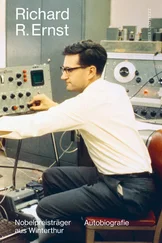59
Indeed, he and I soon grew intimate. Our conversations attained the proper detachment. Strangely enough, it was precisely the skeptical minds that contributed to it: Montaigne, Stendhal, also Lichtenberg — and, among the philosophers, Schopenhauer and Old Gunpowder-Head. Often, hints sufficed, sometimes we became impulsive. One midnight, we embraced and began using the familiar form.
Our intimacy was different from the one I had had with Jagello — there was always a touch of skepticism, as ifwe were poking fun at ourselves. Self-irony is deeply rooted in Jews; it has contributed to their survival. When your life is at stake, the comic role is preferable to the tragic one. Fortune and reputation can be regained, but not life.
Sigi enjoyed discussing such topics. He once said: "If he hadn't done such a good job of helping to boot out the kaiser, then my old man would be alive today."
Sigi's father had run one of the major newspapers. His name, as I have mentioned, was inscribed on one of the marble books.
It had been a strange, yet perhaps not entirely unusual circuit from the Konigsberg Councilor of Commerce to the liberal father and then to Sigi, who had not only frequented revolutionary circles, but also agitated in them. That period had left him with a precise knowledge of the leading figures and the political entanglements, as well as semi-military habits like riding horseback in the Tiergarten every morning.
Overnight, Sigi had discovered conservative tendencies in himself; it took place by one of those meandering routes that seem arbitrary, yet lead to a specific destination. He had studied the trial of a pastor named Schulz, who, partly because of his book, Proof of the Infinite Difference between Morality and Religion, had been tried by the Prussian Supreme Court. Sigi had unearthed this trial in the diaries of old Marwitz, which in turn had led him to Friedrich Wilhelm II, a weak and vice-ridden monarch, under whom the kingdom of Prussia had achieved its greatest expansion. When I first met Sigi, he was absorbed in Vehse's Tales of the Court; he confirmed Heine's opinion of the book: "Pure caviar."
Through his new publications, Sigi had, surprisingly, increased his literary renown; the conservatives like it when an outsider joins their ranks. The switch from the extreme left wing to the right wing is not rare in history: it seems to make people's characters sharper, more incisive. It is the switch from idea to pragma, from opinion to facts. It is repeated in both universal and personal history and must reach deep into the material dimension.
60
I hope that my jottings have not jumbled the times too greatly. Often I cannot tell whether I met someone before, during, or after a catastrophe — indeed, I confuse catastrophes with one another. My memory is tied less to places and dates than to the plasmatic substance.
Why did I bring up Sigi? Right: because of Kornfeld and our conversation when our car ran out of gas near the Black Forest cemetery. After returning from Verdun, the capital ofpeace, I dropped in on Sigi, whom I hadn't seen for a week. In telling him about the trip, I happened to mention Kornfeld's anxieties about the eternal repose of his ancestors and then came to the leveling of old memorial places and the general decline ofthe cult ofthe dead. "They should rig up the moon as a mausoleum."
Actually, I had expected an ironic retort, the kind that Sigi loved, but I saw that he grimaced as if I had surprised him with a magic trick from a top hat. Rea had to bring fresh tea. As she was pouring it, he said: "I've reserved a spot for you." And when she had left:
"Friedrich, you don't realize what you've just said: that is the countermove to the motor world."
But then irony came into play after all:
"And it's also good business."
He must have had a Chasidic rebbe among his ancestors.
61
Sigfried Jersson, the great banker, had asked Kornfeld and myself to meet with him: we sat together in his office. Soundproofwalls, double windows and doors; no noise penetrated.
A man's taste is revealed, at first sight, by the paintings or, if the walls are bare, by the proportions — indeed, even more strongly by the latter: the invisible harmony dominates. This was the case, and I did not feel that something was missing. The main price of such an arrangement is the complete insulation.
Old Jersson was dressed like one of the senior members of the Jockey Club. He would have fitted in there physiognomically as well. His Berlin office was only a dependance, but he was often here, for he loved the city. It was rumored that he had once chartered one of the fastest planes in order to take a check to New York; the interest accruing in several hours was greater than the expense. Perhaps this was merely an anecdote, like those told about Rothschild.
Whenever he wanted to peruse a document, he would use his monocle, which was attached to a black ribbon. He did so now as he picked up the presentation that Kornfeld and I had written at Sigi's prompting. It was the only paper lying on the desk. His viewing.2 no doubt, a gesture, for it was obvious, as his quest revealed, that he had perused the contents meticulous I nurtured no great hopes. His invitation was probably sparked by a certain curiosity, or else the banker wanted to do his nephew a favor. Occasionally, such potentates start a firm for poor kinsmen, even lithe business runs purely at a loss. Sigi had once told me: "The old guy often doesn't know what to do with his money. He then drives new nails in to hang it up."
By inviting us, Jersson probably meant to determine whether we were personally reputable or Bohemians with fantastic ideas to Sigi's taste. That was what his questions boiled down to after he sized us up through his monocle. I could introduce myself as having a degree in sociology and as one of the directors of Pietas_ This was not disadvantageous. I noticed that he had had the firm investigated. So our meeting was probably more of a personal introduction, for the banker was also informed about Kornfeld — he asked him several questions concerning geology, which was not a random move, for Jersson had also made quite a name for himself in petroleum and he often dealt with prospectors.
The oil magnates have taken on the role of kings — their nets encompass lands and seas.
The meeting lasted three quarters of an hour, and had been tailored to that timespan, for a secretary appeared without being summoned and saw us out.
Two robust men followed us all the way to the street; they had searched us for weapons when we had entered. As we left, Jersson shook our hands. He said: "My son-in-law is a master ofthe unprofitable arts, but sometimes a blind chicken can peck up a kernel."
62
Nevertheless, I was surprised that we were invited back. This time, Uncle Fridolin was also there. The banker had flown in from New York and landed on the roof; he presented the summary of his reflections:
"Gentlemen — I have no interest whatsoever in pipe dreams or in running a pious establishment. Funerals have always been a sound business and could become a big business in these times; a genuine and widespread need exists. After reviewing the documents drafted by Messrs. Kornfeld and Baroh, I am prepared to form a company; I would advance the initial capital. I would not like the name of my bank linked to it; I suggest that Herr Fridolin Gädke should sign for the firm. I will have the necessary contracts drawn up and submitted to you by the end of the week."
That was the birth of the firm of Terrestra, under whose aegis our Pietas continued a modest existence, although the impulses radiated from the latter. Jersson then outlined his conception of the development.
Читать дальше












